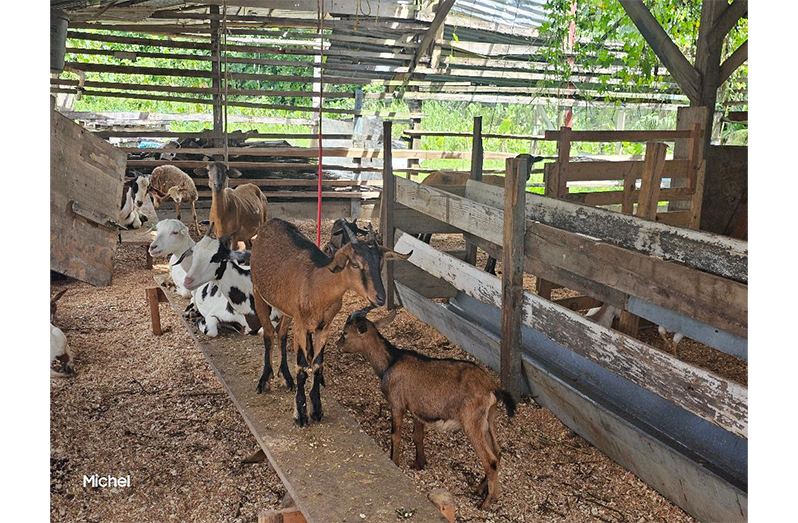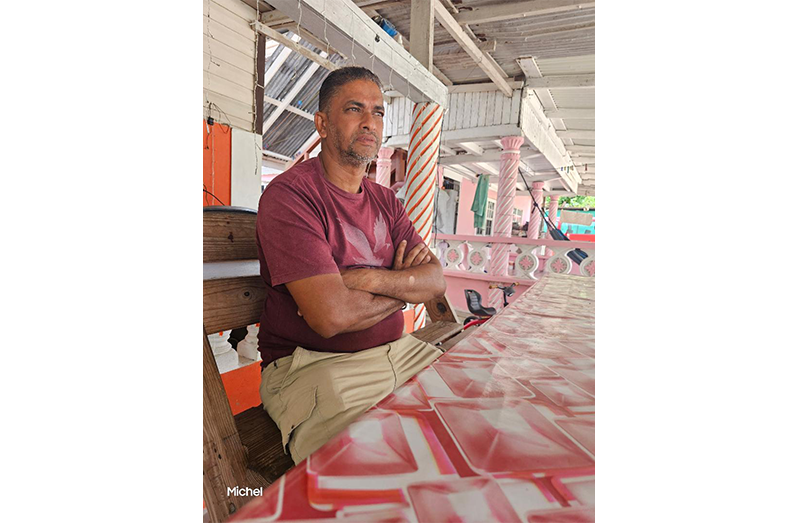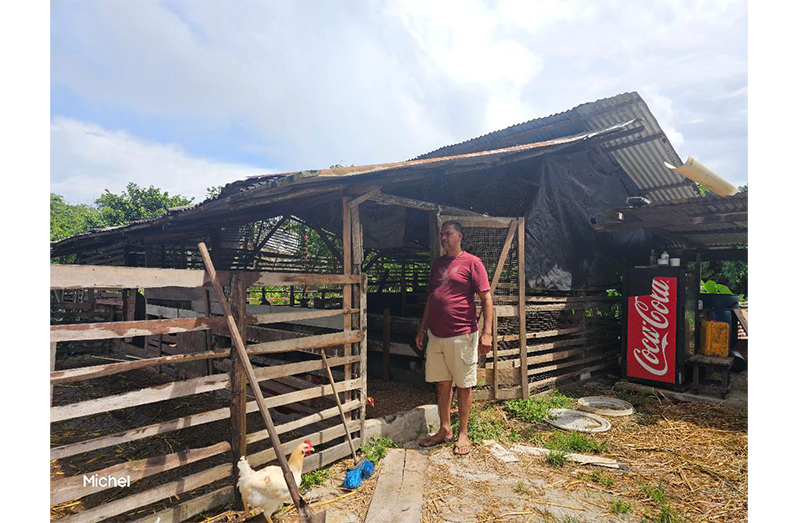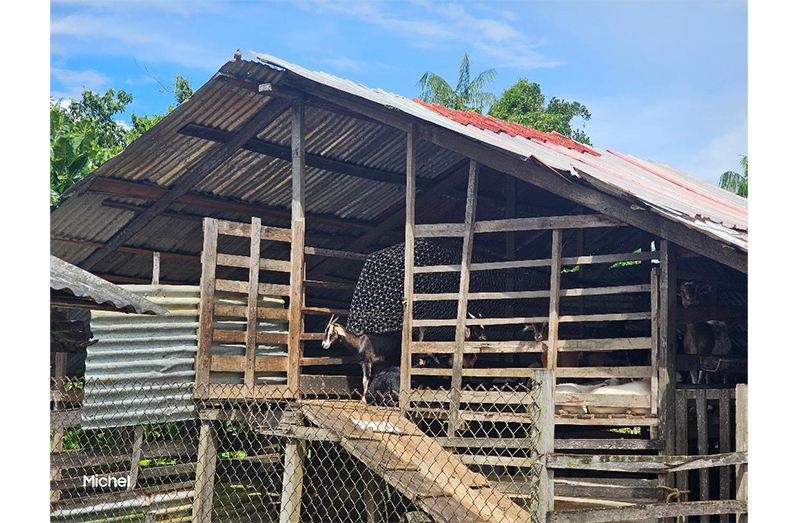AT the beginning of the Diamond Housing Scheme in East Bank Demerara, residents know where to find fresh, high-quality meat.
Mahabeer Ramkissoon, affectionately known as “Boyee”, runs a bustling retail poultry outlet here, supplying freshly plucked chicken, duck, and mutton to a loyal community who return ,week after week, not just for the taste, but for the care and attention he puts into every bird.
“What keeps them coming back is trust,” Boyee says, carefully arranging his chickens. “I make sure my meat is safe, fresh, and wholesome.” He plucks on demand, never leaves meat in the sun for more than ten minutes, disposes of waste hygienically, and sanitises his outlet thoroughly before opening each day.

Farming has always been in Boyee’s blood. Growing up on his parents’ farm in Buzz Bee Dam, he learnt early how to care for goats and sheep, the rhythm of feeding, cleaning, and tending animals.Those lessons shaped his life, guiding him through the highs and lows of agriculture. As a young man, he reared layer chickens on a large scale. But despite his dedication, setbacks came. Unvaccinated chicks, scarce vaccines, and disease wiped out entire flocks.
“I couldn’t continue producing unhealthy chickens for families. That was a hard lesson,” he recalls.Rather than give up, Boyee reinvented himself. Three years ago, after a major loss, he shifted from rearing his own birds to buying locally-grown meat chickens to pluck and sell, while also investing in small ruminants—goats and sheep—for the growing demand he saw locally and regionally.

Today, he raises Nubian mixed goats, and is developing a premium breed of sheep using Dorper and Katahdin genetics. “People are eating more protein now,” he explains. “I wanted to meet that demand and provide healthy, quality meat. That’s how I can contribute to my community.”
To properly care for his animals, Boyee has adopted intensive, climate-smart farming methods. Elevated pens keep his goats and sheep dry, comfortable, and hygienic, even during heavy rains. While the East Bank has no communal pasture, he finds creative ways to feed his herd, cutting grass from backlands, and occasionally from roadways.
These small acts of ingenuity reflect the kind of farmer he is—resourceful, determined, and attentive. The new Buzz Bee Dam highway, which passes directly in front of his home and farm, has brought both challenges and opportunities.
“Animals must be kept safely away from traffic,” he admits, “but the road allows me to reach more customers, sell more meat, and grow my business. The benefits outweigh the risks.” The Highway has also made it easier for him to serve his loyal Diamond Housing Scheme community customers, who trust him for both quality and safety.
Boyee’s journey has been strengthened by support from the Guyana Livestock Development Authority (GLDA). He is particularly thankful for the Region Four extension team, including Dr. Nauth, Veterinary Officer, and Mr. Bhagwandin, Livestock Officer, whose guidance on disease management, feeding, and record-keeping has been invaluable. He is also grateful for government programmes ensuring chicks are vaccinated before sale, significantly reducing mortality. “It allows farmers like me to focus on growing healthy animals instead of constantly worrying about losses,” he says.

Always ready to embrace change, Boyee is particularly excited about the improved traceability system to be rolled out by the Ministry of Agriculture through agencies such as the GLDA. “A system like this will help farmers track and record our animals properly, which is good for everyone—producers, consumers, and the country,” he says.
The development of a traceability system aligns with the Food Safety Act 2019 and Guyana’s National Food Safety Policy, which emphasise the need for traceable, transparent, and accountable food production systems.
Looking to the future, Boyee also hopes to participate in a ram/sheep rotation programme that would allow farmers to improve genetics in their flocks, raising the quality of locally-produced meat even further. Meanwhile, his poultry business continues to thrive.
He buys 250–300 chickens at a time, plucking them fresh for customers, and during holidays, ducks are also in high demand.
Despite the popularity of his meat, he proudly maintains fair prices. “I believe in supporting local production. Families deserve quality meat at affordable rates, even during the busy season,” he says.
“This is a new era for farming in Guyana,” Boyee reflects, looking over his flock of goats and sheep and the chickens lined up for the morning rush. “We are not just producing for ourselves; we are producing for our country. And that makes me proud.”
As the festive season approaches, Boyee’s chickens, ducks, goats, and sheep are ready for families across East Bank Demerara.
His story—from early losses to innovative, climate-smart livestock farming, meticulous food safety, engagement with extension services, and readiness to adopt traceability—illustrates how resilience, dedication, and a commitment to local production can turn challenges into opportunities, feeding both stomachs and pride across the nation.



.jpg)









